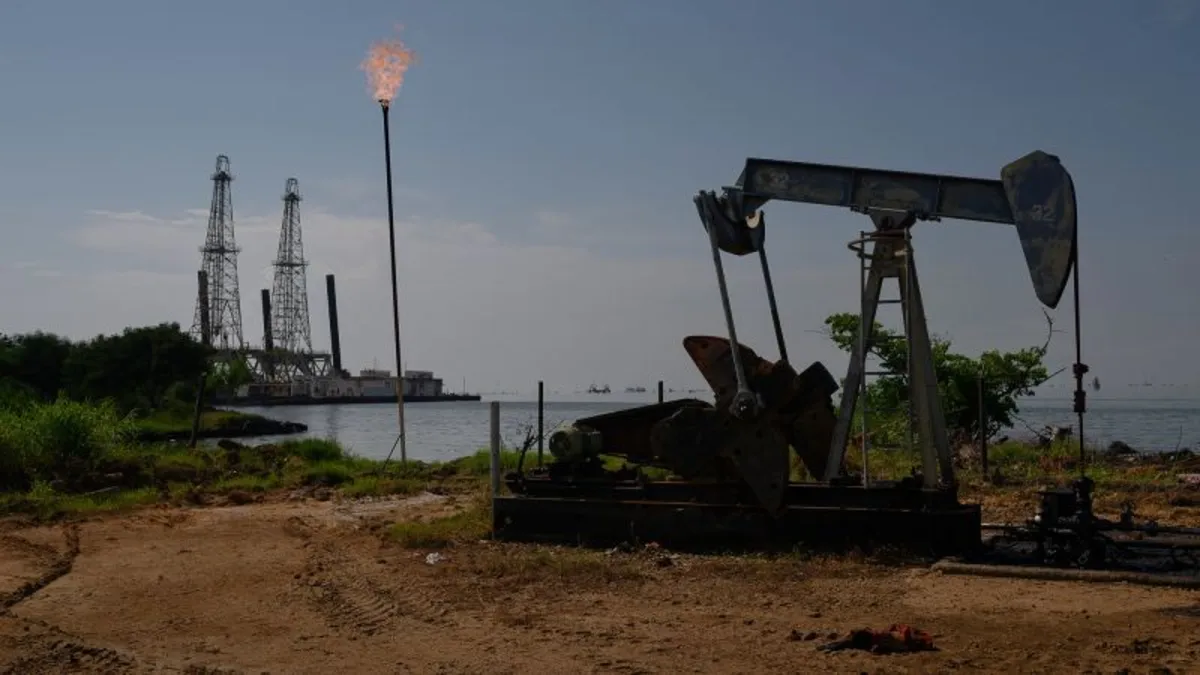
On Monday, President Donald Trump declared a significant policy change, stating that he will impose a 25% tariff on any country that purchases oil from Venezuela. This announcement was made via a post on Truth Social, where Trump emphasized Venezuela's antagonistic stance toward the United States and its values. He stated, “Venezuela has been very hostile to the United States and the freedoms which we espouse. Therefore, any country that purchases oil and/or gas from Venezuela will be forced to pay a tariff of 25% to the United States on any trade they conduct with our country.”
In his statement, Trump made unsubstantiated claims that Venezuela has intentionally sent criminals, including violent individuals and members of gangs like Tren de Aragua, to the United States. This assertion raised eyebrows as it lacked any supporting evidence. The timing of this announcement is particularly noteworthy, as it coincides with reports suggesting that Trump is planning to delay previously announced tariffs on various imports, including pharmaceuticals, cars, and lumber, which were set to take effect on April 2.
Despite the announcement of the new tariffs, markets opened significantly higher on Monday, seemingly unaffected by Trump's latest threats. According to Commerce Department trade data, Venezuela was one of the top foreign suppliers of oil to the US last year, with the US purchasing approximately $5.6 billion worth of oil and gas from the country in 2024. This was a notable increase from a brief period in 2023 when the Biden administration lifted sanctions on Venezuelan oil, only to reinstate them in April 2024 due to concerns over the country's electoral integrity.
While Venezuelan oil shipments increased during the period of lifted sanctions, they still lagged significantly behind Canada, which exported $106 billion worth of oil and gas to the US last year. Canada accounted for an impressive 60% of all US oil and gas imports, while Venezuela only represented 3%. This stark contrast highlights the strategic importance of Canadian oil in the US energy landscape.
Prior to Monday's announcement, Trump was already taking steps to limit Venezuelan oil's access to the US market by revoking Chemron's joint venture license to extract oil in Venezuela. However, following a meeting with Chevron CEO Mike Wirth and other oil executives last week, Trump is now contemplating extending their operating license. This decision is expected to take effect on April 3 and is partly framed as a punitive measure against Venezuela for its reluctance to accept deported migrants associated with the Tren de Aragua gang.
In a recent turn of events, Venezuela has reached an agreement to resume repatriation flights from the US, receiving 200 deportees on Monday. Some families of these deportees have asserted that their relatives were not involved in any criminal activities, and the Trump administration has yet to provide substantial evidence to counter such claims. This ongoing situation highlights the complexities of US-Venezuela relations and the intricate balance of energy policy and humanitarian considerations.